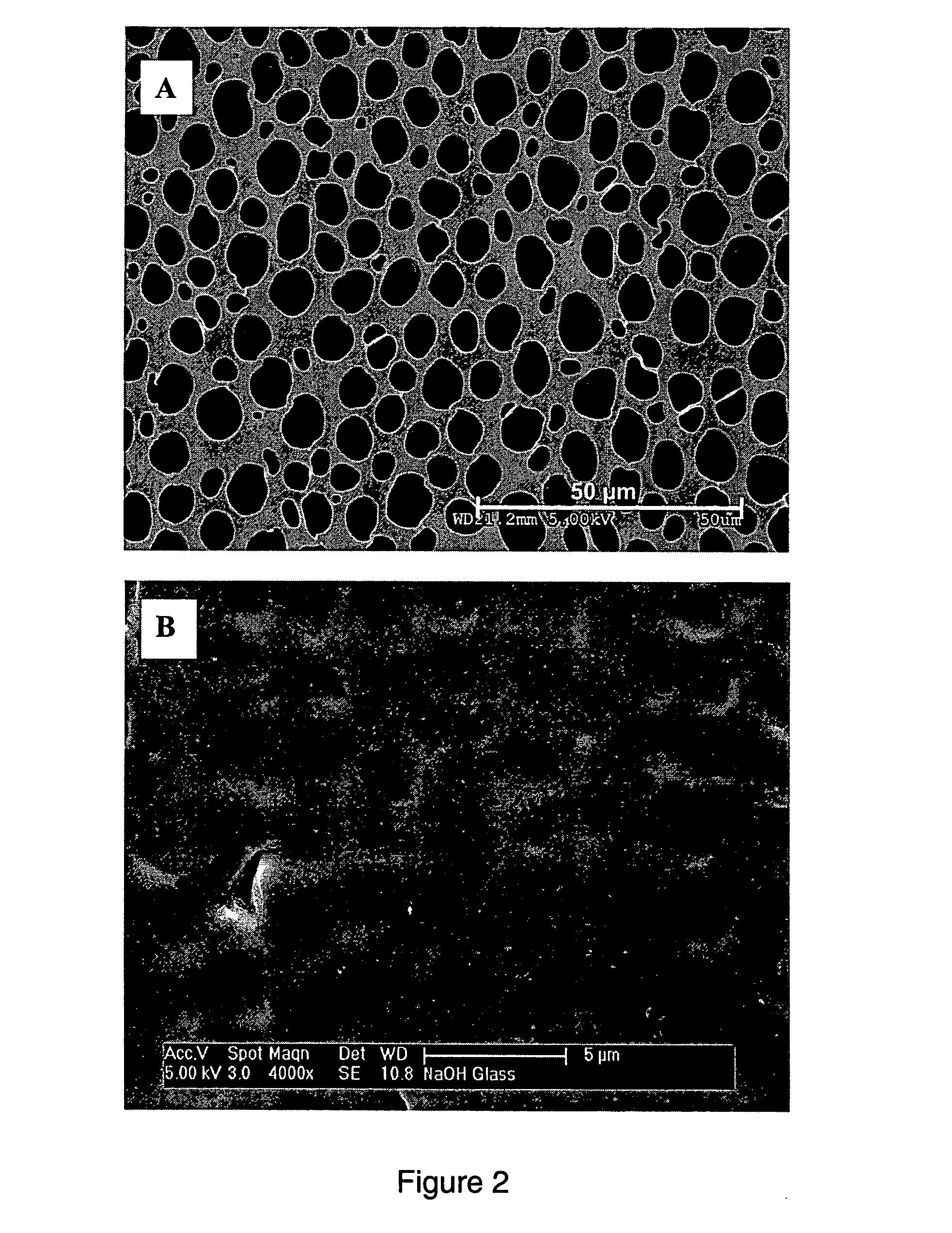Peripheral nerve growth conduit
a peripheral nerve and conduit technology, applied in the field of peripheral nerve repair scaffolds, can solve problems such as in vivo degradation, and achieve the effects of reducing or avoiding irritation of surrounding tissues, effective surface environment for peripheral nerve growth, and high flexibility
- Summary
- Abstract
- Description
- Claims
- Application Information
AI Technical Summary
Benefits of technology
Problems solved by technology
Method used
Image
Examples
Embodiment Construction
Definitions
[0148]The term “scaffold” as used herein is well known to the skilled reader. In particular, a scaffold in the context of the present invention is a structure adapted for peripheral nerve growth. Suitably the scaffold promotes or enhances peripheral nerve growth.
[0149]The term “pit” as used herein means a closed-end pore or “blind” hole. In short, a “pit” as used herein does not extend all of the way through the wall of the scaffold.
[0150]The term “nanopit” as used herein means a pit having at least one dimension on the nano- or sub-μm scale.
Film Formation
[0151]PCL pellets (Sigma-Aldrich) were dissolved in dichloromethane (3.0%, wt / v) and gentle heating at a temperature of approximately 50° C. could be used to assist dissolving. PCL solution was evenly applied onto borosilicate glass slides (75×25 mm2), which had been degreased with acetone / ethanol (1:1, v / v).
[0152]Complete solvent evaporation was allowed in a fume cupboard for at least 48 hours, to provide films with a t...
PUM
| Property | Measurement | Unit |
|---|---|---|
| diameter | aaaaa | aaaaa |
| depth | aaaaa | aaaaa |
| thickness | aaaaa | aaaaa |
Abstract
Description
Claims
Application Information
 Login to View More
Login to View More - R&D
- Intellectual Property
- Life Sciences
- Materials
- Tech Scout
- Unparalleled Data Quality
- Higher Quality Content
- 60% Fewer Hallucinations
Browse by: Latest US Patents, China's latest patents, Technical Efficacy Thesaurus, Application Domain, Technology Topic, Popular Technical Reports.
© 2025 PatSnap. All rights reserved.Legal|Privacy policy|Modern Slavery Act Transparency Statement|Sitemap|About US| Contact US: help@patsnap.com



